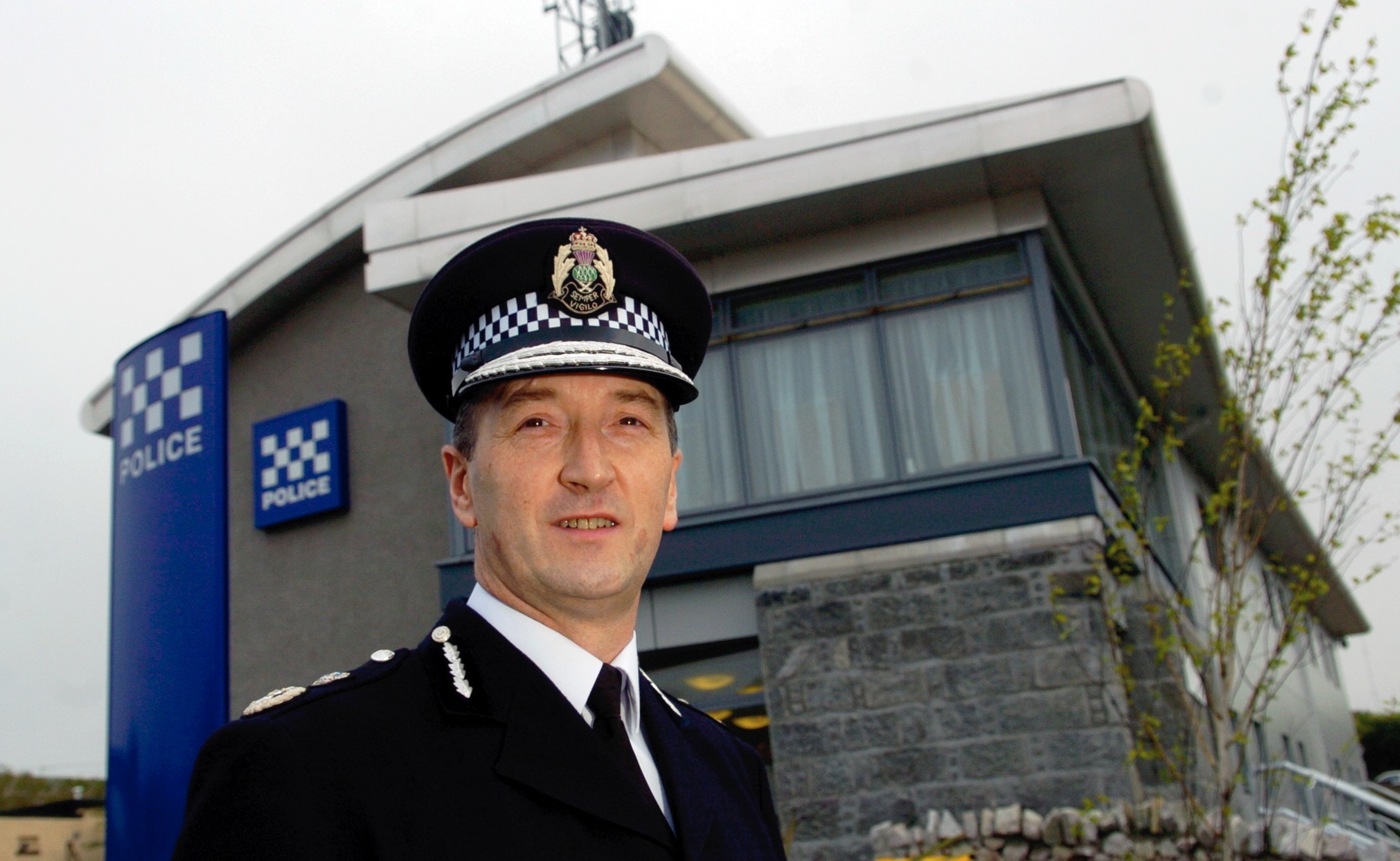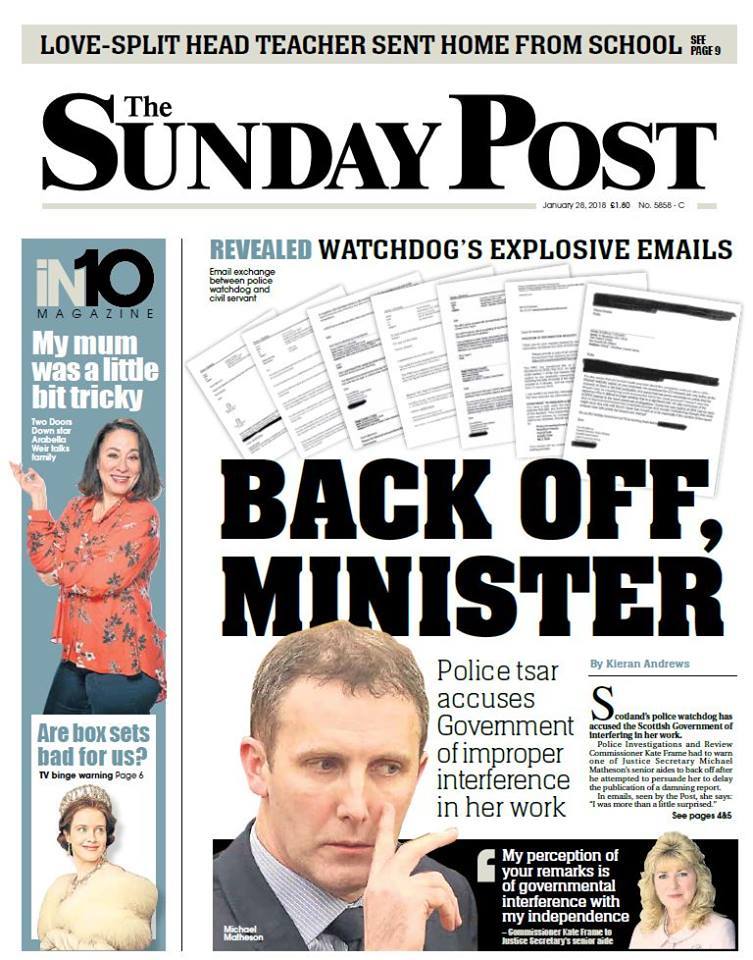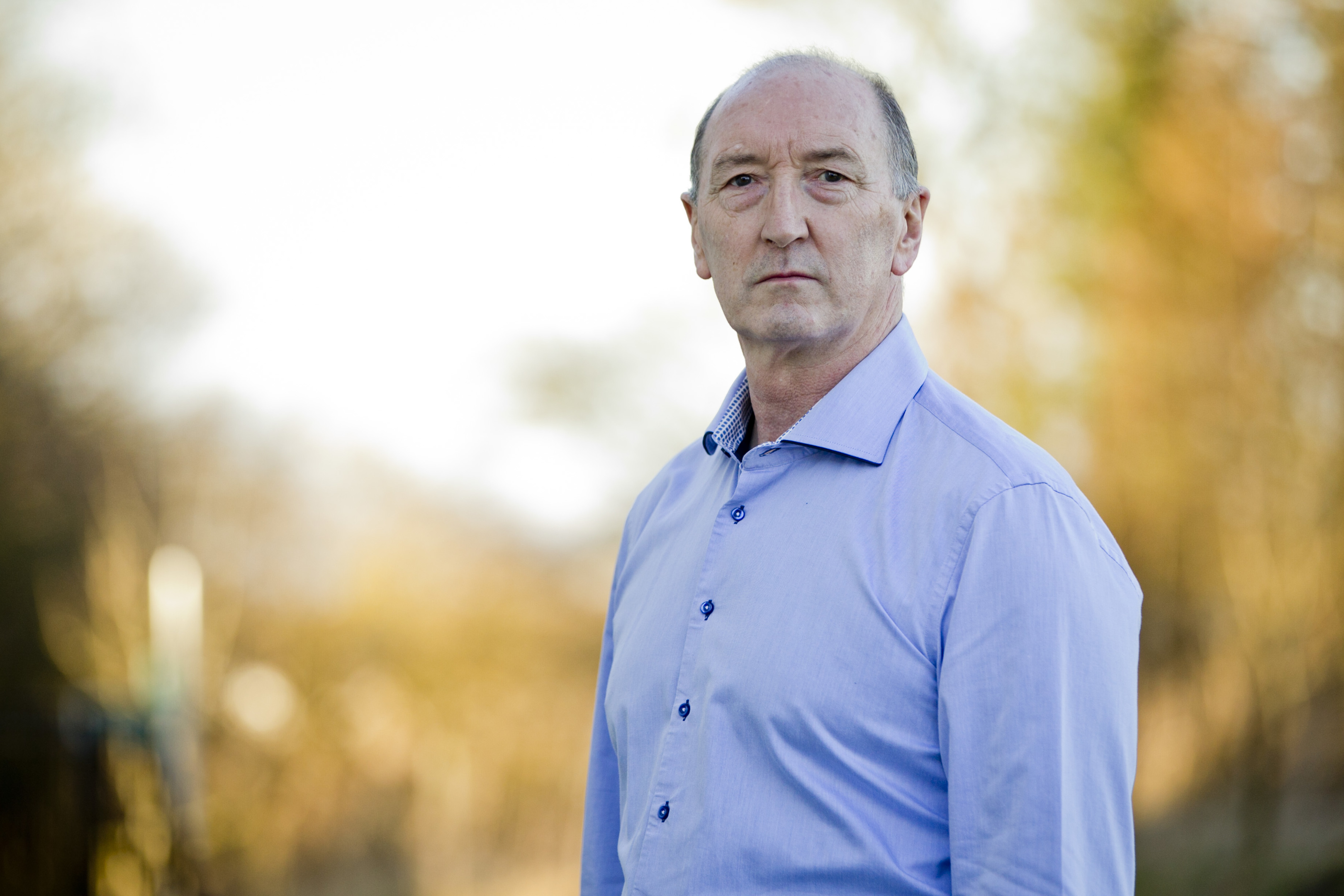
A FORMER chief constable yesterday accused Government ministers of political interference in Scotland’s policing.
Colin McKerracher said undue political interference has increased in recent years and has, on occasion, been unconstitutional.
The former Grampian chief branded the merger of eight regional forces into the national Police Scotland as “unwanted and unnecessary” and said the single force had been launched for political not operational reasons.
He said: “We are now seeing it is not working. Police are in the headlines for all the wrong reasons now, failing call centres, senior officers complaining about other senior officers.”
The ex-Grampian chief, who was in the running to take charge of Police Scotland when the country’s eight forces were merged five years ago, spoke out after we revealed last week how Scotland’s independent police watchdog accused the Government of trying to interfere with her work.
Mr McKerracher told the Post that ministers are “more involved in the day-to-day running of services.”
He said: “Governments are there to serve; they are not there to influence decisions from a political perspective. Yet, this has been happening over time.
“The Scottish Government has power. Sometimes that power is wielded in a way that is not constitutional.
“Government officers are there to advise ministers. It is very rare for a minister to go out and get involved with anybody without taking advice from officials.”
Justice Secretary Michael Matheson rejected calls to resign at Holyrood this week after one of his most senior civil servants was warned not to interfere in the work of Scotland’s Police Investigations and Review Commissioner Kate Frame in withering emails.
Ms Frame said her perception of the civil servant’s attempts to postpone publication of a critical report was of “governmental interference”.
SNP Minister Mr Matheson – who told MSPs he “fully supported” Ms Frame’s independence – was already embroiled in a row over political interference after being accused of pressurising the Scottish Police Authority into reversing a decision to allow Chief Constable Phil Gormley to return to work. He is currently on special leave as bullying claims are investigated.
Mr McKerracher said Mr Matheson should not have become involved in the SPA decision to allow Mr Gormley to return to work.
He said: “Government officials should have told him to keep out. This was a call for the Scottish Police Authority, as employers. I can’t think of the process which made him think he could become involved.
“The whole issue of Mr Gormley’s ‘gardening leave’ is bizarre. I have never heard of a chief constable being put on gardening leave.
“He should have been suspended, as any officer from a constable upwards would have been, which would have ensured protection and clarity of the process.”
Mr McKerracher, 63, said political influence in Police Scotland has been constant since the national force’s inception. He claimed the very creation of a single force was a “political move.”
He said: “The police didn’t want it, the public had no great appetite for it, so why did it happen?
“It happened because the SNP Government wanted to ‘brand’ it Scottish, along with the Scottish Health Service and Scottish Fire and Rescue Service. Even before the introduction of Police Scotland, the politicians decided Grampian should have a motorway unit. There are no motorways in Grampian. But we had to take 24 officers away from community policing to keep the politicians happy.”
One of his biggest disappointments has been the loss of accountability through the abolition of local police boards, made up of politicians of various political persuasions.
Mr McKerracher added: “The safeguard, constitutionally for the country, was that policing was not part of Government.
“Under that structure, it was agreed that chief constables would have operational autonomy, because at times they could be investigating the people who were their paymasters.” Yet the “watchdog” body which replaced police boards, the Scottish Police Authority, is made up of political appointees.
Mr McKerracher added: “You can see that the SPA board have an unhealthy relationship with the Scottish Government.
“After the Scottish Parliament was created and started bedding in, you could see how decisions by the Scottish Parliament were starting to interfere with the way chief constables and local authorities ensured their local area was getting the best circumstances to run its local force.”
Mr McKerracher, a CBE and holder of the Queen’s Police Medal, said one warning sign of political interference was the SNP’s pledge to fund 1000 extra officers.
He added: “Whilst it seems like a very generous and politically pleasing decision by Government, it actually tied the hands of forces in Scotland.
“We had, traditionally, been able to lower police officer numbers, or increase them, depending on how the finances were.
“If you were in a time of spending cuts, it was useful sometimes to drop police officer numbers, and use the money saved to ensure you had the right professionals with the right skills in the organisation, in terms of crime analysts, forensic scientists, force control rooms etc.
“That move was an example of Government demanding we kept numbers at a particular level.
“That was one of the first major creeps in terms of interference by Government. That was a time when they fell out with the Association of Chief Police Officers Scotland, who questioned whether it was the right thing to do. The Government more or less told us: ‘Just you do it.’ ”
Mr McKerracher suggested it was time for an “internal restructure”, establishing four or five “command centres” across Scotland would allow the single force to respond to the different policing needs in different parts of the country.
Similar ideas have been floated by the Scottish Liberal Democrats, who were the only party at Holyrood to oppose a single Scottish police force.
Lord Wallace, the party’s former Justice Secretary, said there was no longer a “proper and healthy balance” between ministers and policing.
He added: “Recent revelations of Government interference make the case for fresh police reform even stronger. At the moment too much power is hoarded on the desk of the justice secretary. That has to change.”
A Scottish Government spokesperson said: “The independence of operational policing is clearly enshrined in the Police and Fire Reform (Scotland) Act and we will continue to support the service to carry out its work, free from any political interference.
“Police reform was widely supported on a cross-party basis and with recorded crime having been reduced by more than a third over the last decade, public confidence remains strong.”
Labour: Justice Sec deliberately misled MSPs
Justice Secretary Michael Matheson may have broken the law by telling police watchdogs that allowing the Chief Constable to return to work was a “bad decision”, Labour claims.
Daniel Johnson, the party’s justice spokesman, has written to First Minister Nicola Sturgeon suggesting Mr Matheson’s behaviour could have breached the legislation that established Police Scotland.
Mr Matheson is under pressure over his involvement when the Scottish Police Authority (SPA) reversed a decision to allow Chief Constable Phil Gormley to return to work while misconduct investigations were being carried out.
The SPA board agreed in November that he could return to duty – but
then-chair Andrew Flanagan has claimed Mr Matheson told him it was a “bad decision”.
Mr Matheson told MSPs he merely questioned whether Police Scotland’s leadership or the PIRC had been informed of the move. Neither had been told. But Mr Johnson claimed: “The minister’s characterisation of the meeting to Parliament was inaccurate and knowingly misleading.”
A Scottish Government spokesman said: “The Justice Secretary has acted entirely appropriately at all times. He made clear to Parliament he felt such clear deficiencies in the SPA board’s decision-making process were completely unacceptable.”

Enjoy the convenience of having The Sunday Post delivered as a digital ePaper straight to your smartphone, tablet or computer.
Subscribe for only £5.49 a month and enjoy all the benefits of the printed paper as a digital replica.
Subscribe
